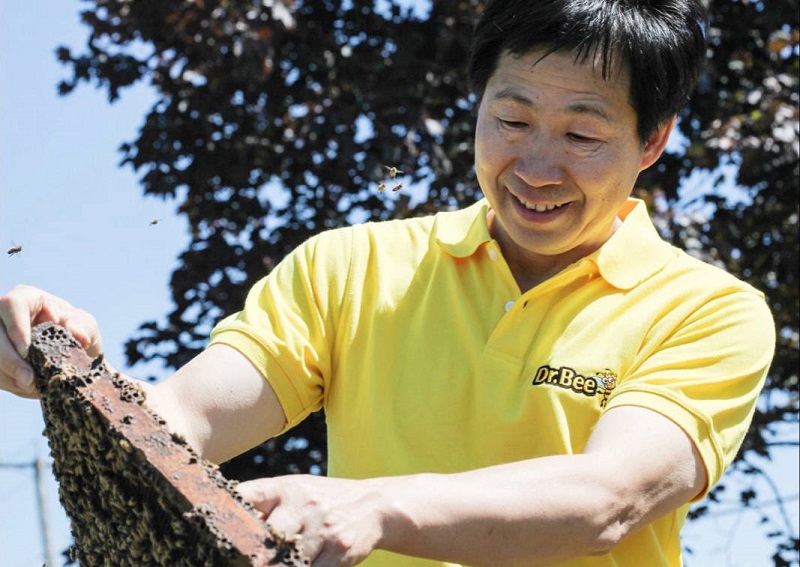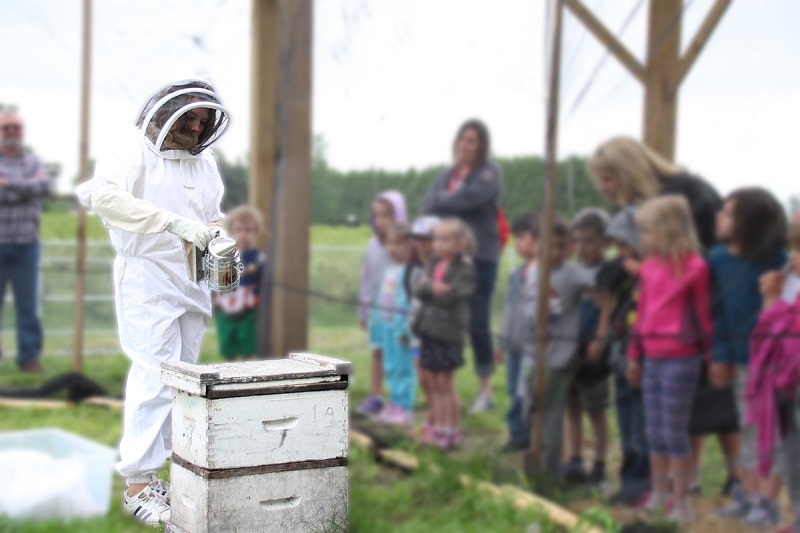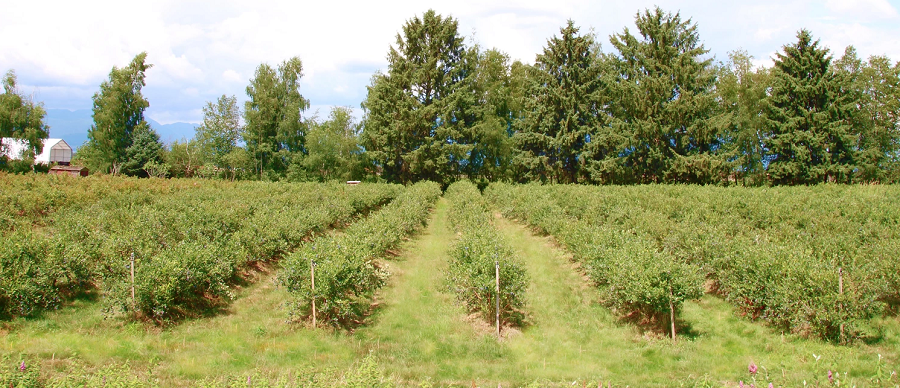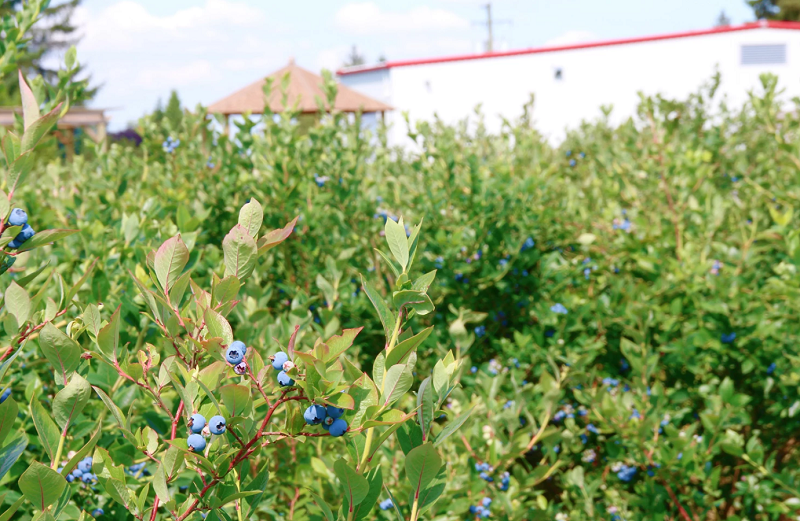Dr. Ron Lin has been passionate about bees since he was a small child. He still vividly remembers the time a honey bee landed on his shoulder when he was just 5 or 6 years old. “I was so calm,” he recalls. Instead of feeling afraid of being stung, he was overcome with curiosity. “When I was a kid, I was quite amazed by the bees,” he says. “It seems like there was a connection between me and bees.” Lin’s amazement never waned, and he went on to study beekeeping in college and eventually received his PhD in apiology from Simon Fraser University.
These days, Dr. Lin goes by Dr. Bee, and he runs a large beekeeping operation and a certified organic blueberry farm in Pitt Meadows, British Columbia. He keeps about 24 hives year-round on his farm, and the rest of his 2,000 hives (approximately 100 million bees!) are rented out to local farms as a short-term pollination service.

Dr. Ron Lin, "Dr. Bee"
For the last decade or so, the global bee population has been rapidly declining, a phenomenon that is not only alarming from an environmental and conservationist perspective but also from an agricultural one. Pollinators are responsible for 1 out of every 3 bites of food, and honey bees are the heavy lifters—they do 80 percent of the pollinating worldwide.
While many beekeepers have been struggling with colony collapse disorder and other problems, Lin has experienced very little hive loss. He approaches bee health in a holistic way. “They have immune systems just like human beings,” he says. “So we give them good nutrition.” Lin also monitors his bees closely for parasites and disease, and he makes sure to wrap the beehives extra well during the winter months, so the bees are not adversely impacted by the cold. When it comes to the bees he uses for his pollination service, he tries to minimize the amount of time they spend in transit by placing them on farms no more than an hour away. (Trucking bees long distances, including cross country, is quite common these days, and some researchers believe it causes the bees significant stress and may contribute to colony collapse.)

Dr. Bee beekeeping operation
Lin began his beekeeping operation in 1996, and just a few years later, he expanded his business to include an organic blueberry farm. “Bees and berries fit very well,” he says of his reasoning for adding the blueberry farm. “Bees get the nectar and pollen as food, and [the blueberries] need the bees for pollination.” He says he also chose to grow blueberries because his home city of Pitt Meadows is known for being a great place to grow them. “There are lots and lots of blueberries here,” he says, although he notes that he is one of only two organic growers of the fruit.
He chose to grow organically, he says, because he resides on his farm and wants to live in a clean environment and also because it leads to healthier berries. “It’s the same thing when we keep our bees,” he notes. “We avoid pesticides, herbicides—anything. To keep the bees healthy, instead of using drugs, we try to breed our own bees to be resistant to most parasites or disease.”

Dr. Bee blueberry farm
Lin keeps 24 hives permanently on his 4-5-acre blueberry farm. He says he’s found a ratio of about 5 hives per acre is ideal for pollination. Generally, he says, people aim for 2-3 hives per acre for blueberry pollination, but he likes to have the extra hives in case of bad weather. Bees are less likely to leave the hive on cool, cloudy, and rainy days (it gives them a “bad temper,” he says with a chuckle), so he wants to be sure he has enough bees in case the springtime isn’t particularly sunny.
When asked about the health of bees on organic farms versus conventional ones, he says that bees on organic farms are far healthier. He attributes this largely to the lack of pesticides and herbicides. While pesticides are lethal to bees, he says, there’s lots of research showing that herbicides are also quite harmful to bee health. “The herbicides slowly affect bee growth [and] development,” he says, noting that bees exposed to herbicides can be smaller in size.
 Dr. Bee organic blueberry farm
Dr. Bee organic blueberry farm
He encourages organic farmers to keep their own honey bees to reap the rewards of both a better crop yield and quality (not to mention the added bonus of honey and the reduced need for pollination services). Lin knows firsthand the value that honey bees can bring to blueberries. “Our berries are so good—so good compared to other people’s,” he says. “The berry quality is much, much better. One, there is more sugar content… and then also the berry is bigger.” Lin says that research has shown that honey bees increase the sugar content of blueberries about 1.5 to 2 percent, which is significant. Without bee pollination, blueberry bushes can still bear fruit due to self-pollination, but the yields are reduced and the berries are smaller and not as sweet.
When he has the chance, Lin loves to go for walks on his own blueberry farm, a mini bee oasis in these troubled times. “It’s good to hear the buzz,” he says. “When it’s nice weather, it’s great to walk around the field… I walk outside, ‘Oh look, the beautiful weather…the nice bees buzzing around, good pollen, good flowers. You just feel good when you walk around in the field,” he says happily. “Lots of flowers, lots of bees, especially when you walk in organic fields, you know, it just feels all clean and nice.”






